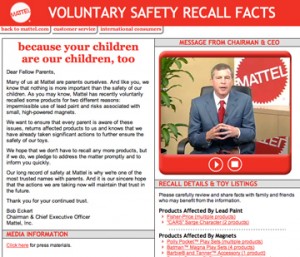https://blogs.ubc.ca/alicexwo/2013/11/17/googling-the-google-culture/
After attending the class on organizational culture within the workplace and learning about Zappos innovative stance on what the workplace should be like, I have become quite interested in the different types of organizational culture that occurs in different workplaces.
While reading through Alice Wo’s blog posts I noticed a post on this very topic. She took the concepts we learned in class and applied them in an analysis of Google’s organizational culture. As Alice mentioned Google places a huge value on creating a comfortable, unique, and diverse workplace, similar to Zappos.
Personally I believe that this is an ingenious way to organize the workplace as it allows the employees not only to be passionate about the work that they are doing, but also to enjoy coming to work, ultimately resulting in a higher quality of work.










